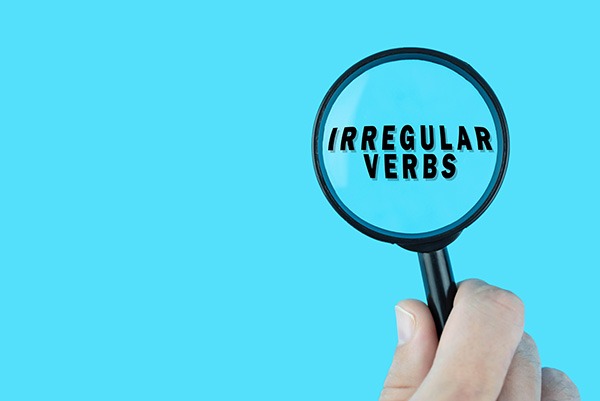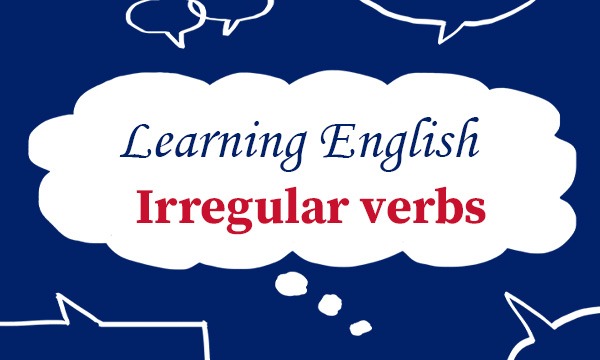
Irregular verbs are verbs that do not form the past simple tense and the past participle by adding -ed to the base form. There are three main groups of irregular verbs in English.
In Group A, the base form, the past simple and the past participle are the same:
- The base form, e.g. put
- The present simple tense, e.g. puts
- The past simple tense, e.g. put
- The present participle, e.g. putting
- The past participle, e.g. put
Some verbs in Group A include: bet, burst, cast, cut, hit, hurt, let, put, shut, set, shed, split, spread, thrust, upset.
In Group B, the past simple and the past participle have the same form:
- The base form, e.g. buy
- The present simple tense, e.g. buys
- The past simple tense, e.g. bought
- The present participle, e.g. buying
- The past participle, e.g. bought
Some verbs in Group B include:
| base form | past form |
| bend | bent |
| bind | bound |
| bleed | bled |
| bring | brought |
| build | built |
| buy | bought |
| catch | caught |
| find | found |
| hang | hung |
| have | had |
| hear | heard |
| keep | kept |
| kneel | knelt |
| lay | laid |
| make | made |
| say | said |
In Group C, the base form, the past simple, and the past participle all have different forms:
- The base form, e.g. go
- The present simple tense, e.g. goes
- The past simple tense, e.g. went
- The present participle, e.g. going
- The past participle, e.g. gone
Some verbs in Group C include:
| base form | past forms | |
| arise | arose | arisen |
| awake | awoke | awoken |
| bear | bore | borne |
| begin | began | begun |
| bite | bit | bitten |
| blow | blew | blown |
| break | broke | broken |
| fly | flew | flown |
| give | gave | given |
| know | knew | known |
| ride | rode | ridden |
| ring | rang | rung |
| rise | rose | risen |
| saw | sawed | sawn |
| see | saw | seen |
| shake | shook | shaken |
| show | showed | shown |
| shrink | shrank | shrunk |
| strive | strove | striven |
| take | took | taken |
| throw | threw | thrown |
| write | wrote | written |
For further information on English Grammar, visit: https://grammar.collinsdictionary.com/easy-learning
Come back for other blogs on using English in everyday situations: https://blog.collinsdictionary.com/language-learners/learning-english
All opinions expressed on this blog are those of the individual writers, and do not necessarily reflect the opinions or policies of Collins, or its parent company, HarperCollins.



